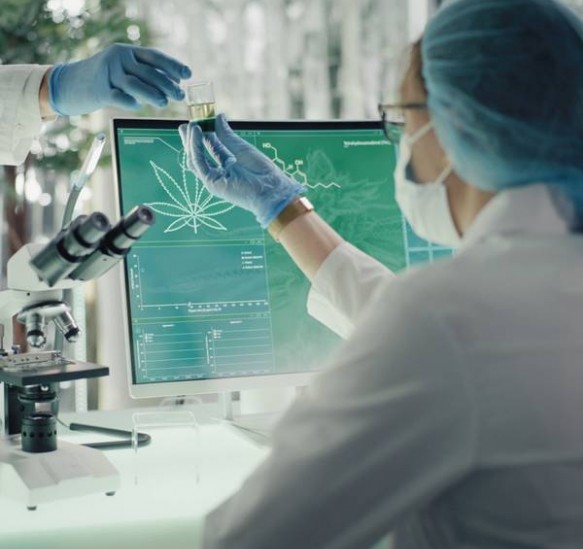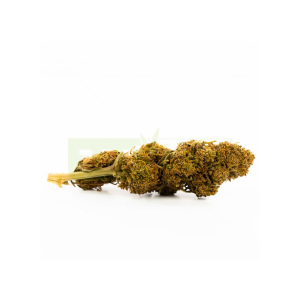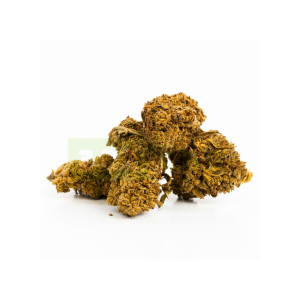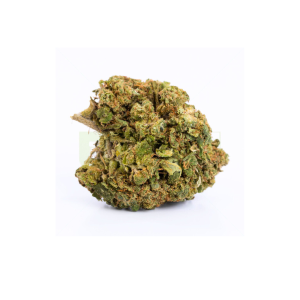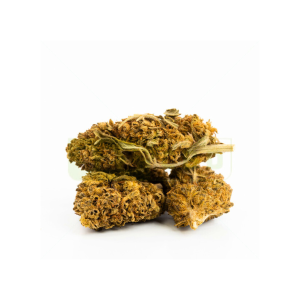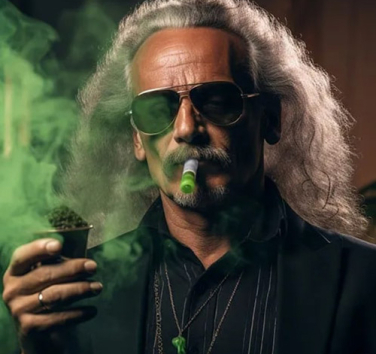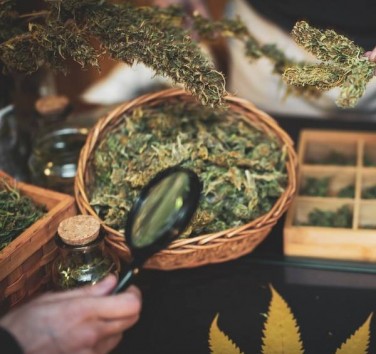Once upon a time...the HHC!
It was Roger Adams, an illustrious American chemist, well known in molecular research in the first half of the 20th century, who achieved the feat of synthesizing HHC in 1944, in the middle of the Second World War. worldwide. At the time, the cannabis industry was experiencing what 321CBD describes as “the first wave of therapeutic interest”.
Basically, American, Italian and German scientists wanted to better understand, and possibly confirm or refute, the therapeutic claims of cannabis found in several ancient civilizations, notably China (Han Dynasty), Ancient Egypt , Ancient Greece, Ancient Rome, Medieval Islamic Civilization (works of Avicenna and Al-Razi in particular) and the Ayurvedic tradition (India). These civilizations mainly aimed at the following applications:
- Pain relief;
- Treatment of gastrointestinal disorders, including nausea and diarrhea;
- Anti-inflammatory;
- Treatment of mood disorders, including anxiety and depression;
- Treatment of sleep disorders;
- Anesthetic for surgery;
- Treatment of wounds and sores;
- Ear pain relief;
- Treatment of headaches and eye pain.
Looking back, it is interesting to note that many of these applications have since been validated by science... Ancient civilizations therefore had merit, in that they were able to "identify" the applications of cannabis without having access to cutting-edge knowledge and equipment.
Adams was therefore a pioneer in the field of organic chemistry, and his work on HHC was part of a broader research project into the therapeutic potential of cannabinoids. To synthesize HHC, he mobilized the process of hydrogenation, combining Delta 9 THC with hydrogen molecules, thus transforming THC into HHC. Through this in vitro synthesis, he wanted to understand how subtle structural modifications could affect the chemical and biological properties of a molecule.
The creation of the HHC has therefore made it possible to go further in understanding how cannabinoids interact with biological systems, in particular their receptors in the brain (“CB 1”). We know today: the work of Roger Adams has had significant implications in medicine, particularly in the management of moderate to high intensity pain, inflammation and neurological and neurodegenerative disorders (Parkinson's, Alzheimer's, etc.). ).
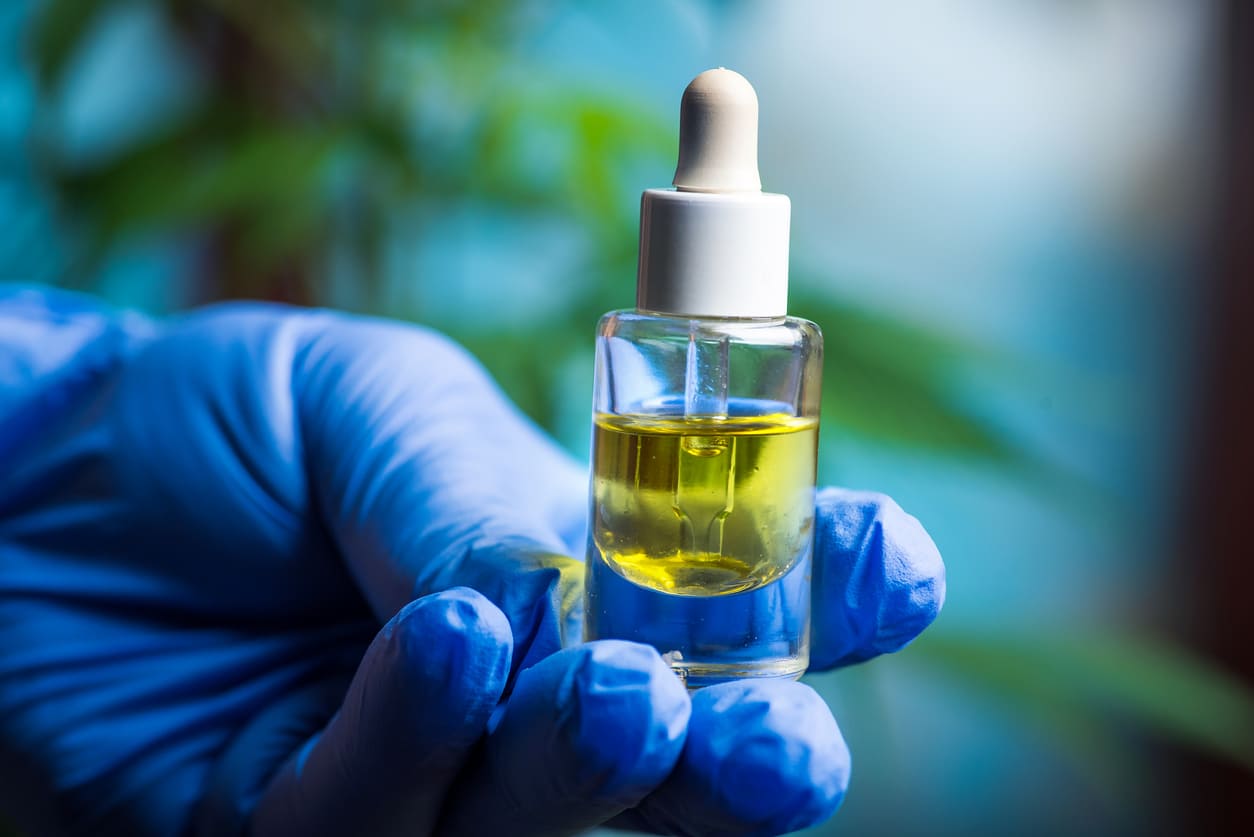
HHC under the microscope: what is actually happening?
As explained above, HHC is hydrogenated using a catalyst, generally platinum, a famous precious metal, on activated carbon, that is to say pure carbon with a porous structure. This catalyst therefore accelerates the hydrogenation reaction while guaranteeing its efficiency and stability. The reaction temperature must be carefully controlled to ensure optimal conditions and avoid unwanted side reactions. We are generally at 50 to 60° C. The pH, however, is not a critical factor for this reaction, because catalytic hydrogenation does not involve the transfer of protons. This is for chemists at heart!
What are the differences between HHC and THC?
The difference between HHC and THC lies mainly in their chemical structure, their affinity for the receptors of the endocannabinoid system and therefore their effects on the body. We have scoured the research reports to summarize these differences for you in 3 points.
|
Chemical structure |
Affinity for endocannabinoid system (ECS) receptors |
Effects on the organism (body and mind) |
|
|
THC |
THC is composed of two aromatic rings and a cyclohexene ring (a ring with six carbon atoms that is not completely saturated). It has a double bond in the cyclohexene ring, making it a more reactive molecule. |
THC has a strong affinity for the “CB 1” receptor of the endocannabinoid system, giving it its characteristic psychoactive effects. When THC binds to the “CB 1” receptor, it triggers a response that alters the release of neurotransmitters in the brain, leading to effects like euphoria, relaxation, the characteristic “high” cannabis, etc. |
THC is the main psychoactive component of cannabis. It causes altered perception, increased appetite, paranoia attacks, anxiety, etc. It is also a highly addictive substance. ð THC is banned in France. |
|
HHC |
HHC is the hydrogenated form of THC. It has the same basic structure as THC, but all of the bonds in the cyclohexene ring have been saturated (hydrogenated), turning this ring into a cyclohexane. This saturation makes HHC less reactive than THC. |
Due to its modified chemical structure, HHC has a slightly lower affinity for the “CB 1” receptor than THC. This means that its psychoactive effects are (sometimes, depending on users), slightly less intense than those of THC. |
The effects of HHC on the body are still being studied, but there is one certainty: its psychoactive effect is beyond doubt. It is its intensity that still remains to be quantified. We talk about it below. ð HHC is banned in France (since June 2023) |
The question of the intensity of the psychoactive effect of HHC is debated. BFM also devoted an interesting report to it on May 4, 2023. Michel, manager of a Parisian store offering CBD and HHC products (before the ban), explains to BFM: “What do people who smoke THC say? That the next morning, their head is like a melon and it's difficult to go to work. HHC is not the case at all. We get up, we feel good and we are ready to leave.”
Okay, should we give a lot of credit to a trader who has stock to sell and who fears that a ban will cause him deadweight losses? Probably not... especially since in the same report, Dan Véléa, addiction psychiatrist, gives a completely opposite opinion: "HHC has more similar effects with cannabis than CBD, whether neuropsychic effects, cardiovascular effects. We are in the same type of products. (...) It has roughly the same effects as a firecracker, four to six hours during which we are high, we have the effects of disinhibition, of lack of control, of poor management of everything that is automatisms, reflexes, many more anxiety attacks than with THC”. This opinion is chilling, to the extent that it considers that HHC is even more dangerous than THC.
What are the differences between HHC and CBD?
HHC and CBD are two cannabinoids… and the similarities end there! One is psychotropic, the other is not. One is addictive, the other is not. One causes a high, the other does not. One is semi-synthetic, the other is natural. Summary of differences:
|
Chemical structure |
Psychoactive effects |
Legality |
|
|
CBD |
CBD is a cannabinoid naturally found in the cannabis plant, particularly the hemp variety, which typically contains low levels of THC. |
THC has a strong affinity for the “CB 1” receptor of the endocannabinoid system, giving it its characteristic psychoactive effects. When THC binds to the “CB 1” receptor, it triggers a response that alters the release of neurotransmitters in the brain, leading to effects like euphoria, relaxation, the characteristic “high” cannabis, etc. |
CBD products are authorized for over-the-counter sale in France, as long as their THC content is almost zero (less than 0.3%). |
|
HHC |
HHC is a semi-synthetic cannabinoid derived from THC (tetrahydrocannabinol) through hydrogenation, a process that adds hydrogen molecules to the THC molecule. |
HHC causes psychoactive effects similar to those of THC, if not slightly more intense. Extensive research needs to be conducted as some sources claim that it has less affinity for “CB 1” receptors than THC, which would theoretically classify it as a “less psychotropic” molecule. span> |
Products containing HHC have been formally banned in France since June 2023. The Ministry of Health took this decision on the advice of the National Agency for the Safety of Medicines and Health Products (ANSM) . |
HHC in France: chronicle of a long-awaited ban
After having long been offered over the counter in certain tobacco shops and online hemp product suppliers, HHC and its derivatives were finally banned on Tuesday June 13, 2023 in France. ““We have decided to list hexahydrocannabinol[HHC] and two of its derivatives, HHC-acetate[HHCO] and hexahydroxycannabiphorol em>[HHCP] on the list of narcotics. Thus, their production, sale and use in particular are prohibited in France from June 13, 2023”, specified the ANSM in a press release published the day before the ban.
This decision comes a few weeks after similar decisions elsewhere in Europe, notably in Austria, Belgium, Denmark and the United Kingdom. "My ministry is mobilized to protect the health of the French and fight against addictions", had then tweeted the former Minister of Health, François Braun.
In a paper retracing the recent history of HHC, the newspaper Le Monde explains that the molecule first appeared on the American market at the end of 2021, before being spotted for the first time in Europe in May 2022 during 'a seizure by customs officers. In January 2023, HHC was easily found in more than 70% of European Union member countries and a few weeks later, two other synthetic cannabinoids with even less known effects could even be freely supplied: HHC- acetate (HHCO) and hexahydrocannabiphorol (HHCP).
Still its press release, the ANSM explains that “the ban decision was based on work by the evaluation and information centers on drug dependence and addictovigilance, and which showed that the chemical structure of these products is close to that of delta 9 THC, classified as a narcotic.
You will therefore have understood: the consumption of HHC and its derivatives was already dangerous before June 2023... it is even more so today because in addition to the harmful effects on health are now added the severe sanctions associated with the law against drug trafficking and consumption.
Let us also recall that the President of the Republic, Emmanuel Macron, asked the Minister of the Interior, Gérald Darmanin, to prepare a decree which would allow the police to collect fines for drug consumption immediately, in cash or by credit card. "We have started to equip agents with 5,000 payment terminals", declared the President of the Republic.
.jpg)
321CBD’s position on “new” cannabinoids
If 321CBD has established itself today as the reference online store for legal hemp products, it is above all thanks to the trust that we have built over several years.
As a responsible and committed company, we want to assure our customers that we will never offer questionable or potentially dangerous molecules, even if they are “legal” because they are not yet expressly prohibited. We prioritize the safety and well-being of our customers over the commercial opportunity.
We also advocate for a legislative paradigm shift in the regulation of cannabinoids. Instead of waiting for new molecules to be identified, evaluated and then potentially banned, we suggest a proactive approach. We propose that all cannabinoids not specifically authorized be considered illegal upon discovery, and only be legalized after a thorough assessment of their safety and effectiveness. This is, in a way, the approach that prevailed for the authorization of CBD and other non-psychotropic cannabinoids such as CBC, CBN and CBG.
This approach would protect consumers from the potential risks associated with the use of new cannabinoids that will be isolated in the future, because there will be some (the hemp plant has more than a hundred). It would also ensure that only cannabinoids which have undergone rigorous scientific evaluation and which have been deemed safe, or even beneficial for health, can be made available to consumers.
Ultimately, 321CBD is committed to only offering its customers premium, traceable and legal hemp products. We will continue to campaign for clearer and more proactive regulation of cannabinoids to allow you to mobilize the right hemp to support your quality of life and your daily well-being with complete peace of mind… and at the best price!
To learn more about our ethics, product selection and brand review processes on our online store, go to the Content Integrity section of 321CBD.
FAQ: Frequently asked questions about HHC
Since when has HHC been banned in France?
France made the decision to ban HHC following health concerns and a lack of conclusive research into its effects. The production, sale and use of HHC were officially banned on June 13, 2023. This measure mainly aims to guarantee the safety of citizens in the face of a still little-known substance, pending more in-depth studies.
Is HHC legal in other European countries?
The HHC situation varies across Europe. In France, it is prohibited, but countries like Spain or the Netherlands authorize it. When traveling, it is essential to know local regulations. Even if you buy HHC legally abroad, bringing it back to France could lead to legal trouble.
What are the side effects of HHC?
HHC, like other cannabinoids, can cause side effects such as dizziness, dry mouth or changes in appetite. Each individual can react differently, hence the importance of a cautious approach and consulting a healthcare professional if in doubt.
Is HHC addictive?
The addictive potential of HHC remains uncertain, as studies on it are still ongoing. Although the ban in France shows a cautious attitude, other psychoactive substances, including THC, have shown beneficial aspects in specific contexts abroad. It is therefore essential to be well informed and act in accordance with the laws.
Is HHC dangerous for health?
The dangerousness of HHC is not completely established. Illegality in France shows a cautious approach, but legalization in other countries indicates a different perspective. As with any substance, the key lies in responsible use and knowledge of the effects. For those interested in HHC, it is recommended to obtain information and experiment in countries where its consumption is regulated.

